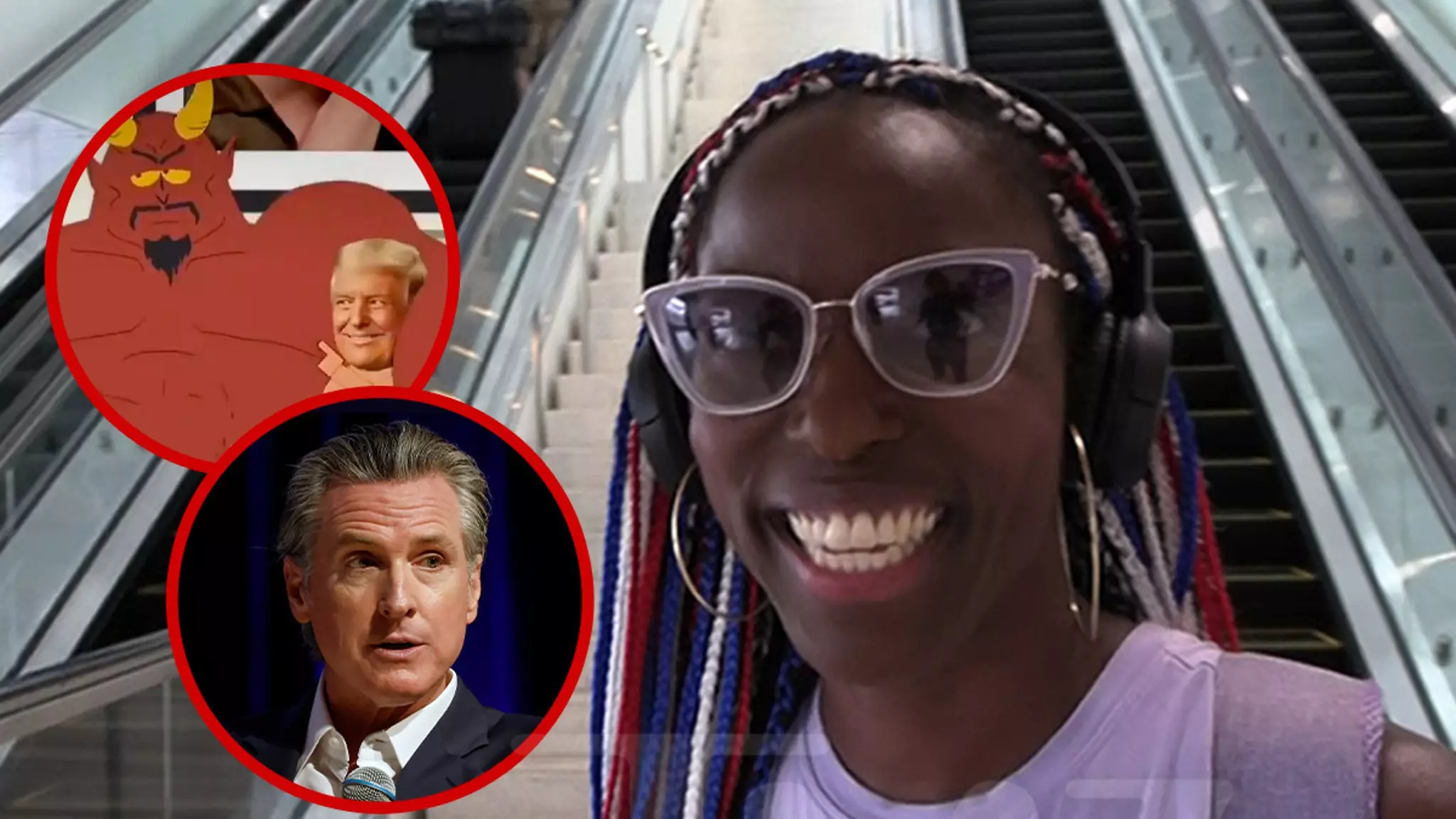In an era where political polarization seems increasingly entrenched, satirical shows like “South Park” serve as provocative mirrors reflecting society’s deepest tensions. Janeshia Adams-Ginyard’s praise for the series underscores an important truth: comedy, especially of the sharp and fearless variety, acts as a societal corrective, forcing viewers to confront their biases and the uncomfortable truths they often prefer to ignore. While some perceive satire as merely offensive, its real power lies in its ability to strip away politeness and compel honest reflection on complex issues, whether they involve politics, social justice, or cultural absurdities.
Partisan Offensiveness as a Sign of Cultural Vitality
Adams-Ginyard defends “South Park” for its apparent equal-opportunity offense, emphasizing that the show targets both the left and right with equal vigor. Despite her own political leanings—she supports Donald Trump—she appreciates that satire does not shy away from biting commentary on any side. This approach fosters a kind of cultural transparency; it reminds us that comedy’s role is not to comfort but to challenge. If “South Park” were to only target one side, it would lose its potency as a societal watchdog. Its unapologetic mockery highlights the hypocrisy and contradictions entrenched on both ends of the political spectrum, pushing viewers to question their anchors and assumptions.
The Cultural Divide in Humor and Its Implications
What is particularly intriguing about Adams-Ginyard’s stance is her criticism of the conservative backlash against “South Park’s” humor. She suggests that many conservatives possess a good sense of humor—an assertion that challenges the notion that political ideology inherently correlates with receptiveness to satire. Conversely, she claims that leftists might be less tolerant of humor that punctures their worldview. This dichotomy reveals a deeper socio-cultural divide: humor has become a battleground where ideological tribes defend or reject satire based on their cultural comfort zones. The show’s enduring relevance lies precisely in its ability to provoke such debates, exposing the fragility of ideological echo chambers.
Comedy’s Role in Shaping Political Discourse
Adams-Ginyard’s commentary on Trump’s camp dismissing “South Park” as irrelevant reflects a broader tension about humor’s influence on politics. She argues that, regardless of what political figures say, comedy remains an essential part of cultural discourse, capable of shaping perceptions and even challenging power structures. Ironically, calls for censorship or dismissiveness from political figures often amplify the very messages they seek to silence. Comedy’s irreverence cuts through the noise, offering a space where uncomfortable truths are unveiled in a manner that’s accessible—and sometimes painfully honest—to a broad audience.
The Future of Satirical Culture
Finally, Adams-Ginyard’s suggestion that the cultural landscape could benefit from more boldness—such as alternative late-night shows being canceled—speaks to her desire for a media environment unafraid of stirring the pot. In her perspective, humor that pushes boundaries is vital for a healthy democracy. It keeps political and social elites accountable, all while entertaining audiences and fostering critical thinking. As society continues to evolve amidst endless controversies, the role of daring satire will only grow more important, serving as a vital tool for challenging the status quo, regardless of which side of the aisle is targeted.

